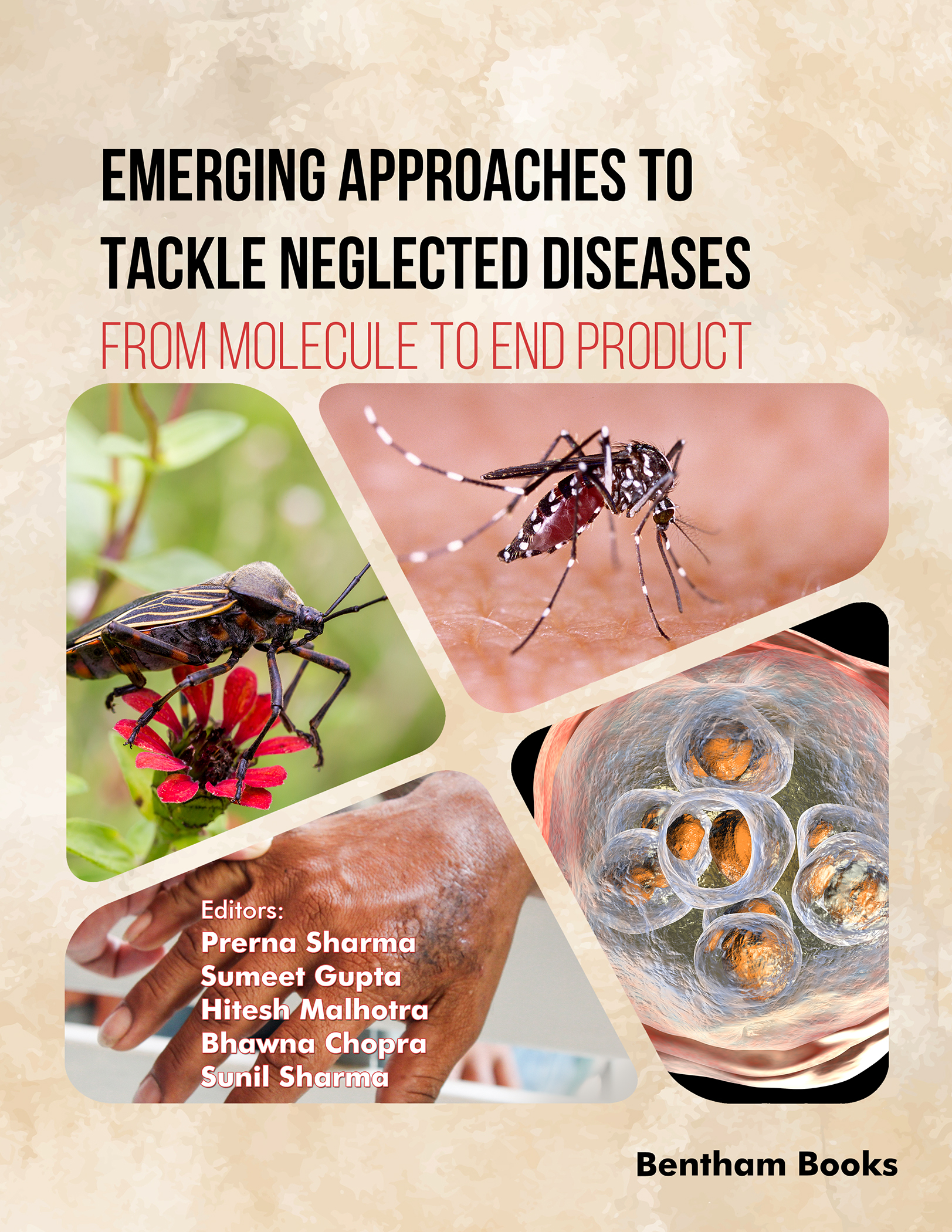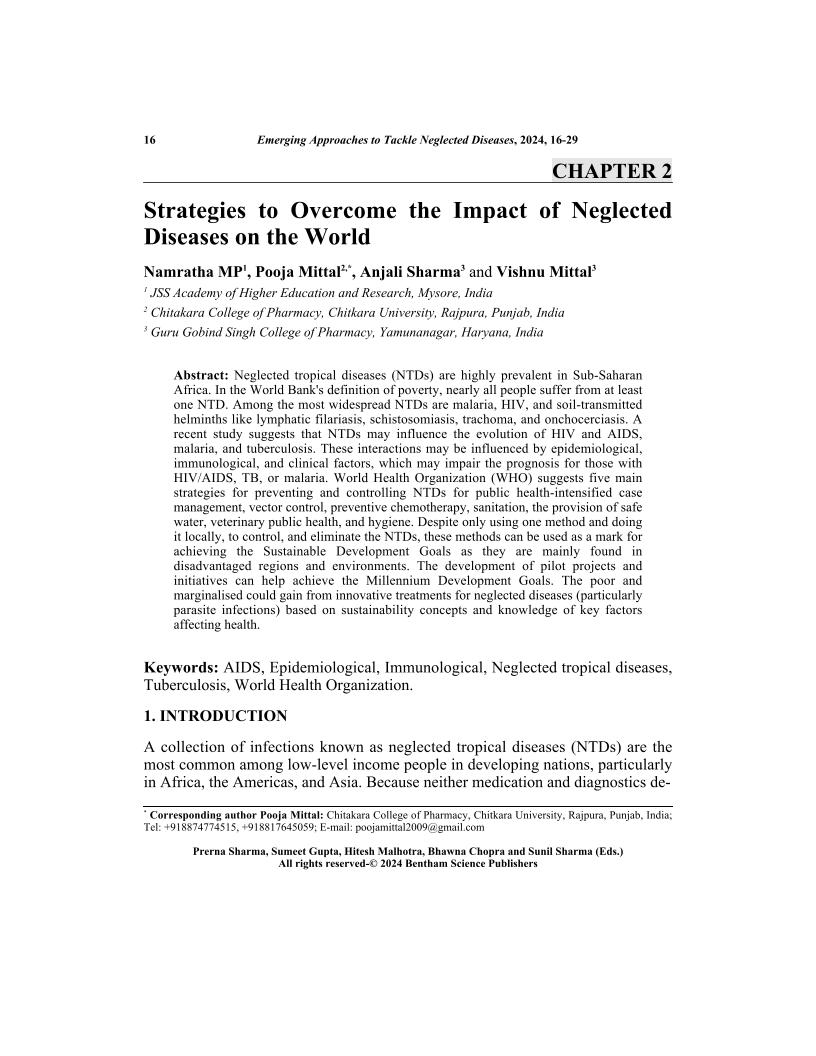Strategies to Overcome the Impact of Neglected Diseases on the World

- Authors: Namratha MP1, Pooja Mittal2, Anjali Sharma3, Vishnu Mittal4
-
View Affiliations Hide Affiliations1 JSS Academy of Higher Education and Research, Mysore, India 2 Chitakara College of Pharmacy, Chitkara University, Rajpura, Punjab, India 3 Guru Gobind Singh College of Pharmacy, Yamunanagar, Haryana, India 4 Guru Gobind Singh College of Pharmacy, Yamunanagar, Haryana, India
- Source: Emerging Approaches to Tackle Neglected Diseases: From Molecule to End Product , pp 16-29
- Publication Date: June 2024
- Language: English
Strategies to Overcome the Impact of Neglected Diseases on the World, Page 1 of 1
< Previous page | Next page > /docserver/preview/fulltext/9789815196863/chapter-2-1.gif
Neglected tropical diseases (NTDs) are highly prevalent in Sub-Saharan Africa. In the World Bank's definition of poverty, nearly all people suffer from at least one NTD. Among the most widespread NTDs are malaria, HIV, and soil-transmitted helminths like lymphatic filariasis, schistosomiasis, trachoma, and onchocerciasis. A recent study suggests that NTDs may influence the evolution of HIV and AIDS, malaria, and tuberculosis. These interactions may be influenced by epidemiological, immunological, and clinical factors, which may impair the prognosis for those with HIV/AIDS, TB, or malaria. World Health Organization (WHO) suggests five main strategies for preventing and controlling NTDs for public health-intensified case management, vector control, preventive chemotherapy, sanitation, the provision of safe water, veterinary public health, and hygiene. Despite only using one method and doing it locally, to control, and eliminate the NTDs, these methods can be used as a mark for achieving the Sustainable Development Goals as they are mainly found in disadvantaged regions and environments. The development of pilot projects and initiatives can help achieve the Millennium Development Goals. The poor and marginalised could gain from innovative treatments for neglected diseases (particularly parasite infections) based on sustainability concepts and knowledge of key factors affecting health.
-
From This Site
/content/books/9789815196863.chapter-2dcterms_subject,pub_keyword-contentType:Journal -contentType:Figure -contentType:Table -contentType:SupplementaryData105

